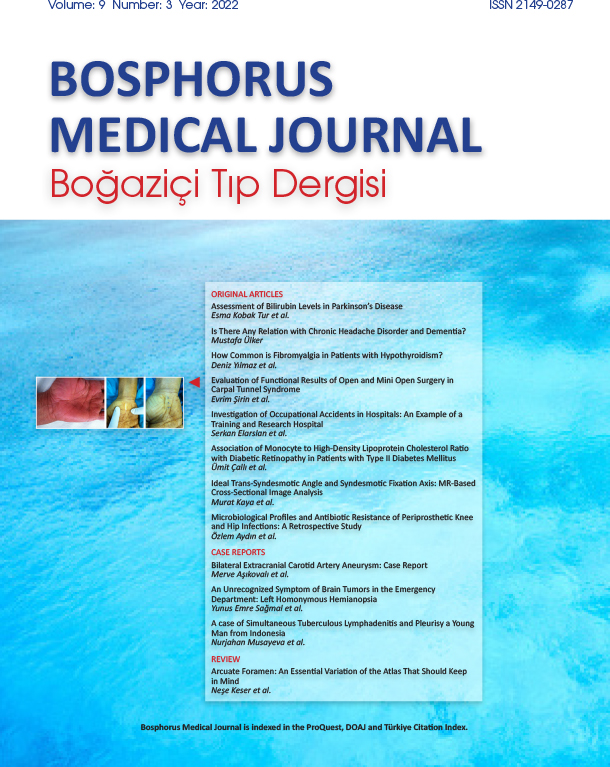Superior Mesenteric and Splenic Vein Thromboembolism due to PAI-1 SERPINE 4, MTHFR 1298 CC and Factor II Prothrombin 2021GA Mutations: A Case Report
Ahmet Can Sarı1, Sönmez Ocak1, Ömer Faruk Bük1, Piltan Büyükkaya21Departmant of General Surgery, Samsun Training and Research Hospital, Samsun, Turkey2Departmant of Hematology, Samsun Training and Research Hospital, Samsun, Turkey
Venous thromboembolism is known as a geriatric disorder, but sometimes, it can be seen in young adults. In these cases, the physician must consider genetic disorders for etiological factors, and genetic screening must be a part of the management plan. A previously healthy 34 years old man admitted to the emergency room with abdominal pain. After clinical and imaging evolution, a diagnosis of splenic infarct was made. After an uneventful splenectomy, the patient was re-admitted with severe abdominal pain and re-operated because of mesenteric ischemia. The genetic screening revealed PAI SERPINE 1 homozygous 4G/4G, MTHFR homozygous 1298 CC and factor II prothrombin 20210GA heterozygous mutations.
Keywords: Factor II prothrombin 20210GA, MTHFR 1298 CC, mutation, PAI SERPINE 14G/4G, polymorphism, venous thromboembolismPAI-1 SERPINE 4, MTHFR 1298 CC ve Faktör II Prothrombin 2021GA Mutasyonlarına Bağlı Superior Mezenterik Ven ve Splenik Ven Trombozu: Olgu Sunumu
Ahmet Can Sarı1, Sönmez Ocak1, Ömer Faruk Bük1, Piltan Büyükkaya21Genel Cerrahi Kliniği, Samsun Eğitim ve Araştırma Hastanesi, Samsun, Türkiye2Hematoloji Kliniği, Samsun Eğitim ve Araştırma Hastanesi, Samsun, Türkiye
Venöz tromboembolizm genellikle ileri yaşlarda görülmekle birlikte genç popülasyonda da görülebilmektedir. Bu olgularda etiyolojide genetik bozukluklar ön planda olduğundan genetik tarama tedavinin bir parçası olmalıdır. Otuz dört yaşında genç hasta karın ağrısı ile acil servise başvurdu. Klinik ve radyolojik bulgular dalak infarktını işaret etmişti. Sorunsuz bir splenektomiden sonra hasta ciddi karın ağrısı nedeniyle tekrar acile başvurdu ve mezenter iskemi tanısı ile tekrar opere edildi. Genetik tarama sonucunda hastada PAI SERPINE 1 homozigot 4G/4G, MTHFR homozigot 1298 CC and factor II prothrombin 20210GA heterozigot mutasyonlar saptandı.
Anahtar Kelimeler: Faktör II Protrombin 20210 GA, MTHFR 1298 CC, mutasyon, PAI SERPİNE 14G/4G, polimorfizm, venöz tromboembolizmManuscript Language: English




















